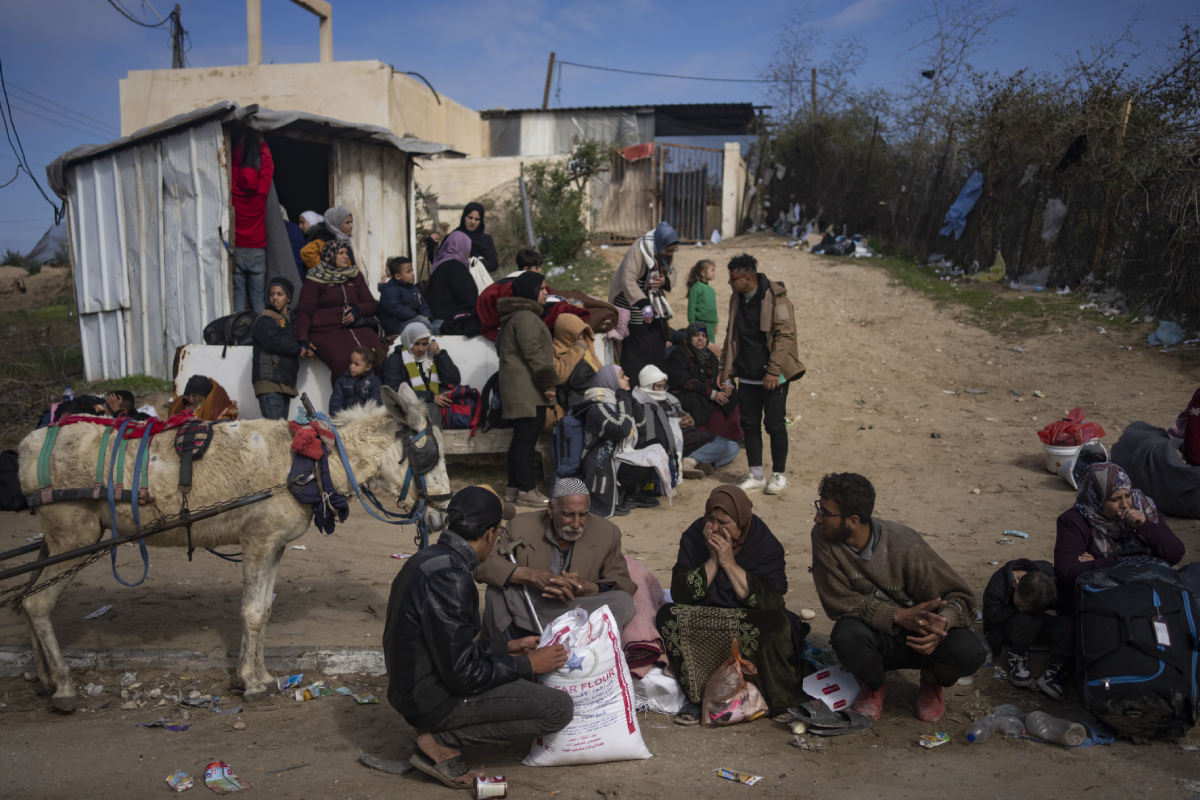That gap is narrowing, with population growth higher among settlers than Palestinians. Ultra-Orthodox Jews, who comprise one-third of the settlers, have a fertility rate in Israel of 6.5 live births per woman. The current fertility rate among Palestinians is around 3.8 births per woman. If this trend continues, by mid-century, the Israeli-Palestinian population in the West Bank could be equal.The only way space could be made for another state would be if the government were to dismantle the settlements and direct the settlers to live within the borders that existed before Israel seized the West Bank in the 1967 Six-Day War.Despite the fact the settlements are illegal under international law – they violate the Fourth Geneva Convention – no Israeli government is likely to try to remove them for fear of violent domestic consequences. Some in Netanyahu’s government are already talking about Israel annexing the West Bank, in the way it annexed East Jerusalem in 1980.Talk of land swaps usually ends with potential offers of land for Palestinians in the barely habitable Negev desert. The major Jewish settlement blocks in the West Bank, by contrast, are in prime real estate.Then there is the question of Gaza, which is barely large enough to accommodate its current population of 2.3 million. With unemployment there at nearly 50%, it is a breeding ground for radicalism, as the Hamas attack in October demonstrated.Most Israelis agree with NetanyahuThe other factor is that Netanyahu’s rejection of a Palestinian state reflects the current views of most Israelis.Polling by the Pew Research Center in March and April 2023 – well before the Hamas attack – showed only 35% of Israelis (including both Jewish and Arab respondents) thought “a way could be found for Israel and an independent Palestinian state to coexist peacefully”. That was down nine percentage points from 2017 and 15 points from 2013.Among Jewish Israelis, those who agreed with the statement dropped from 46% in 2013 to 32% last year. The decline was even sharper among Arab Israelis, who had been more optimistic in 2013, with 74% thinking peaceful coexistence was possible. By 2023, the proportion was just 41%.The extent to which Netanyahu, in office throughout this period, might have influenced these declines is difficult to measure. But considering the current level of hatred and distrust between Israelis and Palestinians, it’s difficult to envisage any potential replacement for Netanyahu taking a different line on a Palestinian state.That reality is reinforced by the Orthodox Jewish demographics noted above. Orthodox Jews tend to vote for conservative religious parties, which means growing numbers of Orthodox voters favour the formation of right-wing governments (given Israel’s strict proportional representation voting system). Netanyahu currently leads an extremist right-wing government, and it’s unlikely to be the last.That means talk of a two-state solution by Western governments is simply kicking the can down the road. It’s not going to happen. Israelis respect the US and value the materiel and diplomatic support provided by US presidential administrations, but they won’t be ordered about by them.And there could be a change in leadership in the US this year, too. The leading Republican candidate, Donald Trump, had a reputation as the most pro-Israel US leader since Harry Truman when he was in office. So, if Trump wins the election and Netanyahu is still in office next year, there will be little head-butting at all.
Source link
is the two-state solution now dead?





